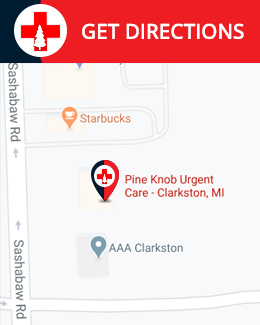What Causes Lower Abdominal Pain in Females?
Lower abdominal pain in females can result from various issues, including mild menstrual cramps, ovulation pain, or more serious conditions like ovarian cysts and pelvic inflammatory disease (PID). Some causes, such as a ruptured ovarian cyst or appendicitis, require immediate medical attention. Pine Knob Urgent Care quickly assesses the pain through exams and tests, ruling out less severe causes and enabling timely referrals to specialists if a serious condition is suspected. For more information, contact us. We are conveniently located at 6310 Sashabaw Rd, Suite C, Clarkston, MI 48346.




ADDITIONAL SERVICES YOU MAY NEED
• Physical Examinations
• Pediatric Services
• On-Site X-Ray
• Bronchitis
• Strep Throat
• On-Site Lab
• Occupational Medicine
• Vaccinations
• Migraine
• STI Testing
• Dot Physical Exams
• Flu Shot
• Laboratory Testing
• Auto Accident Injury



